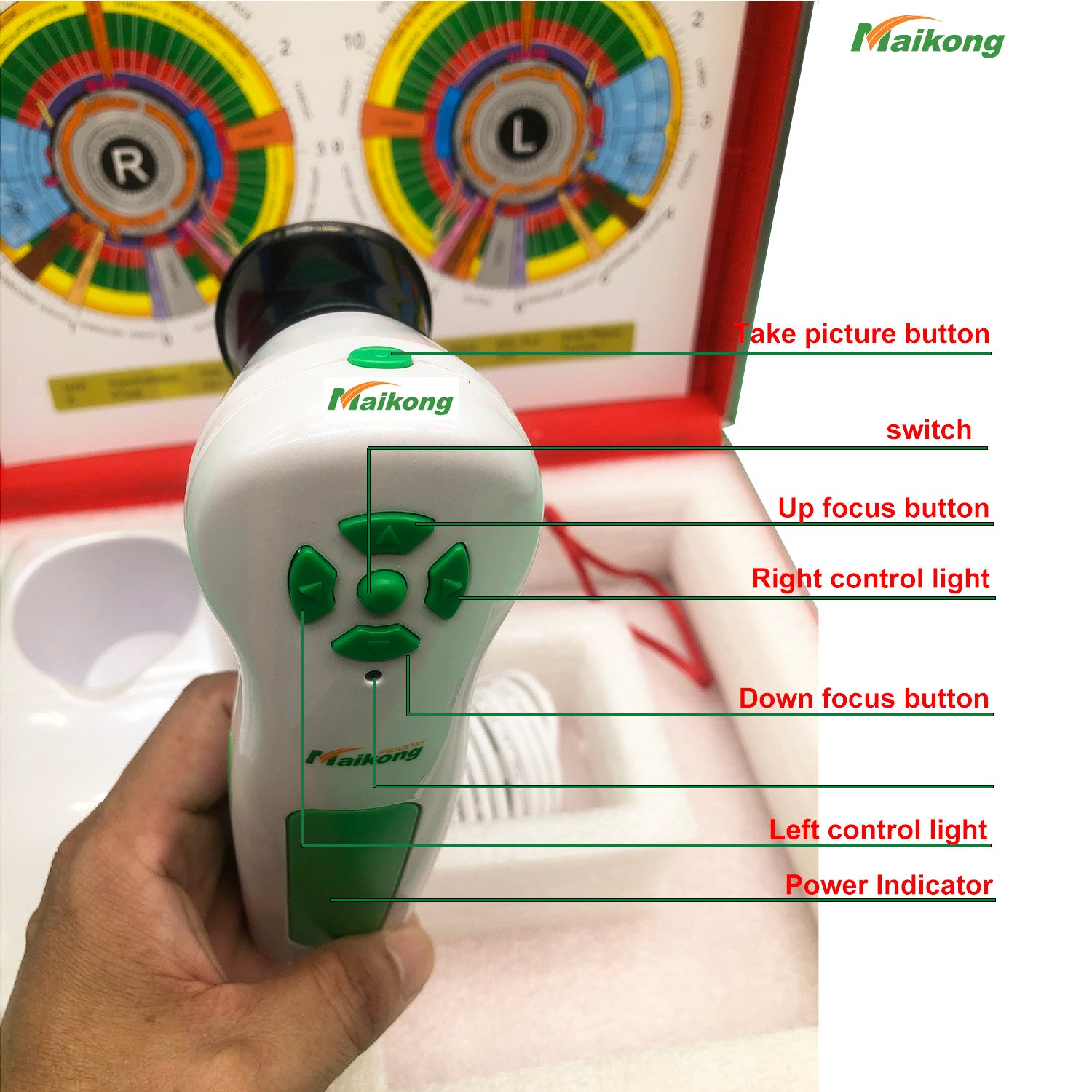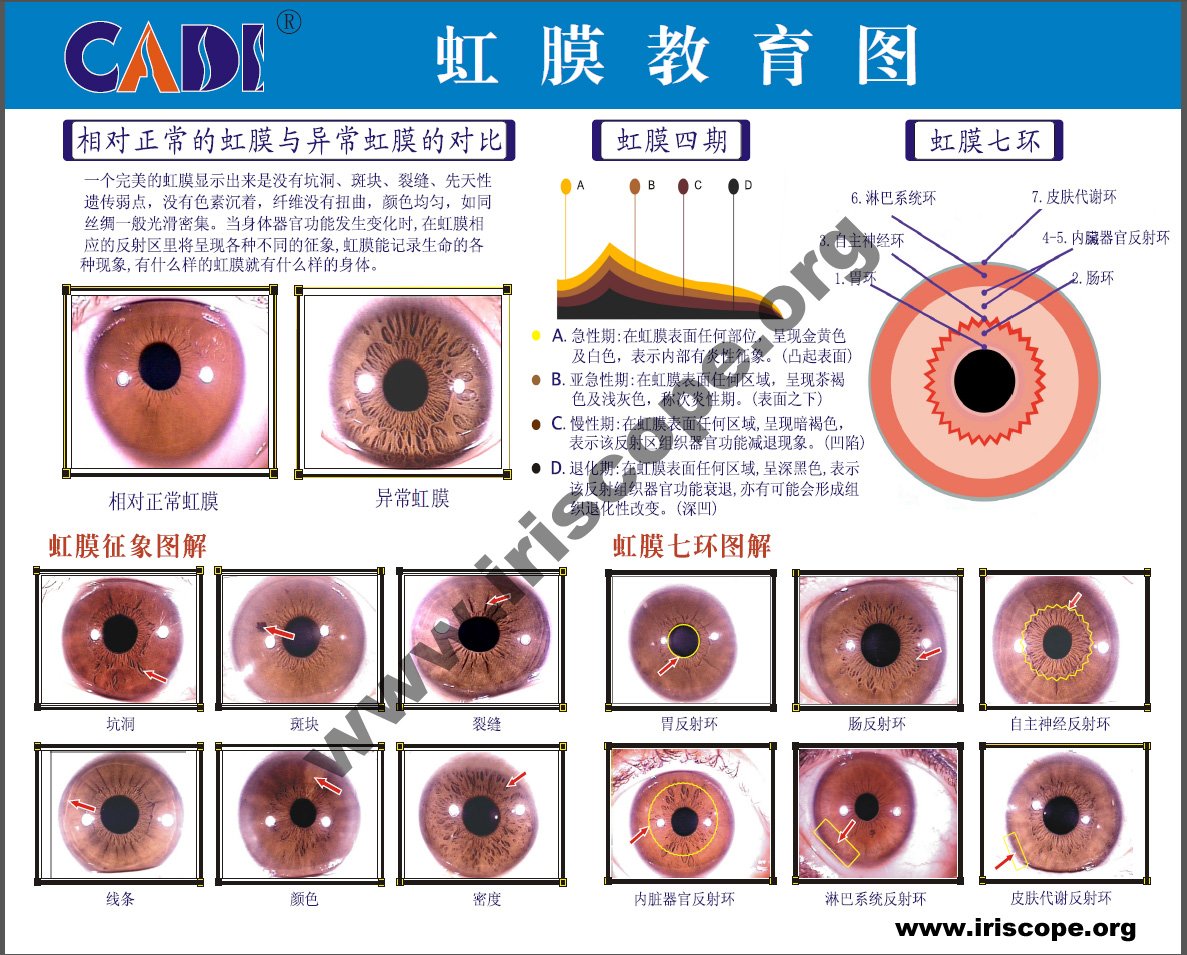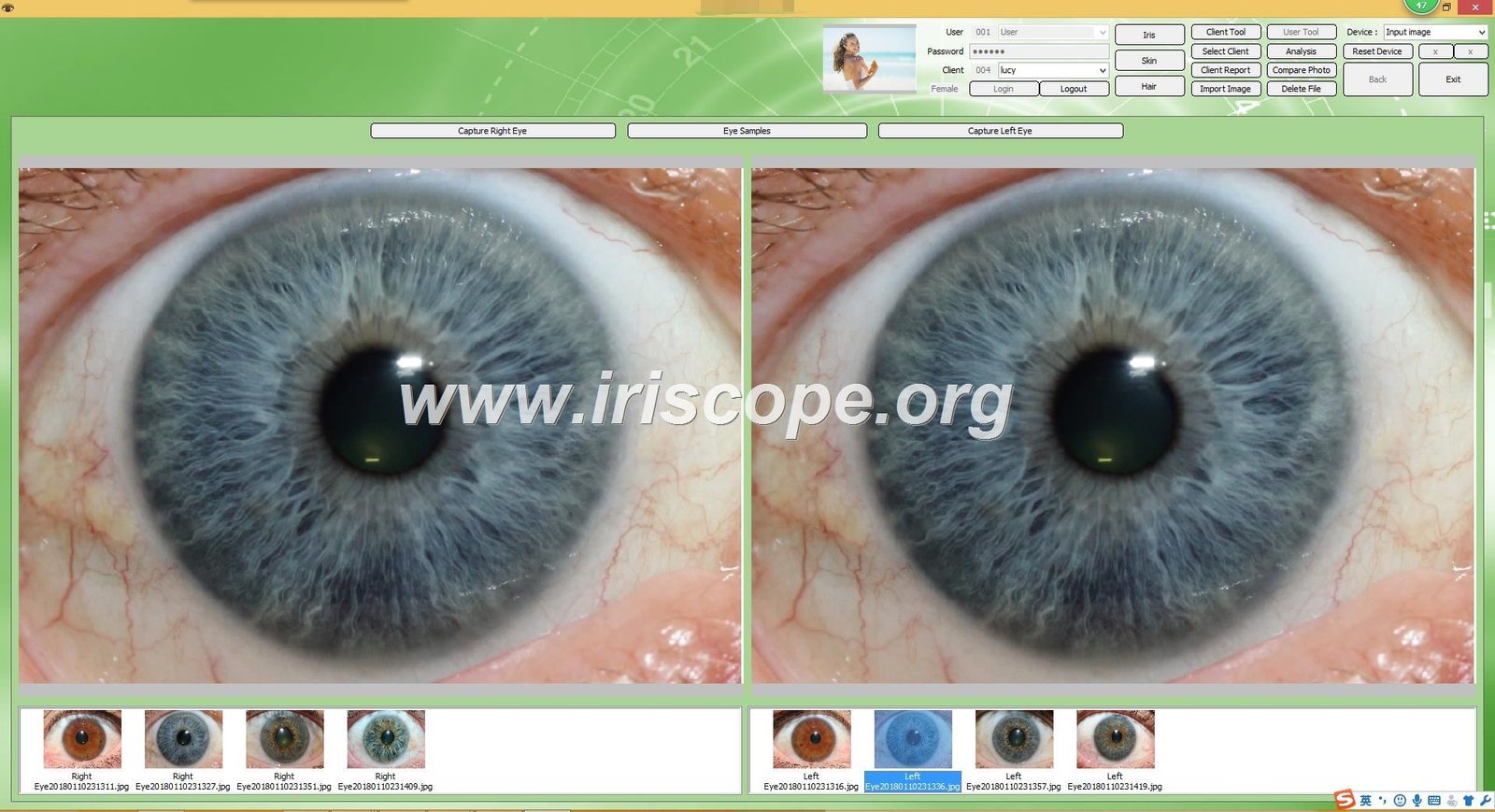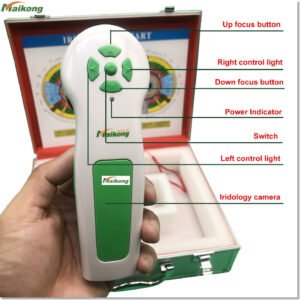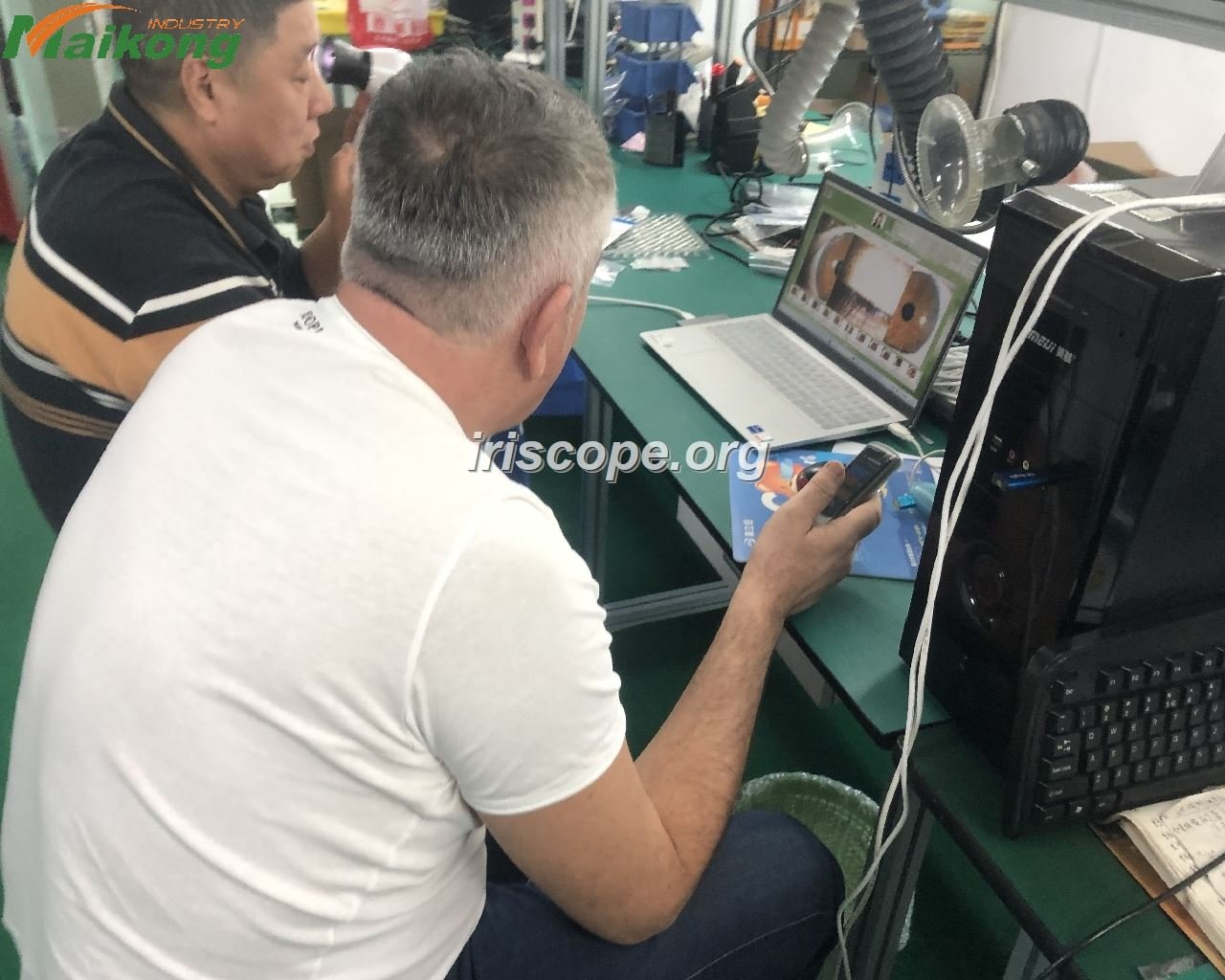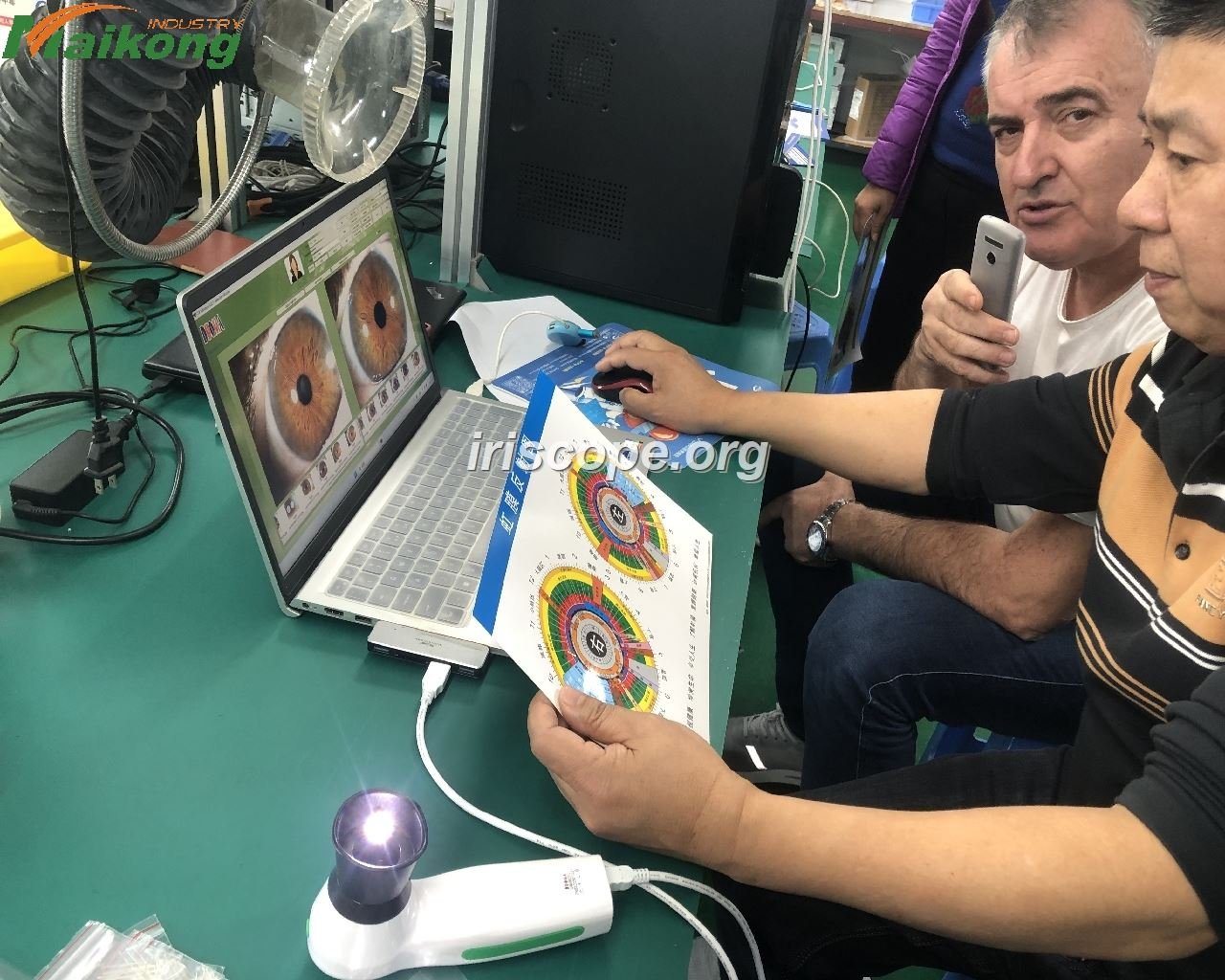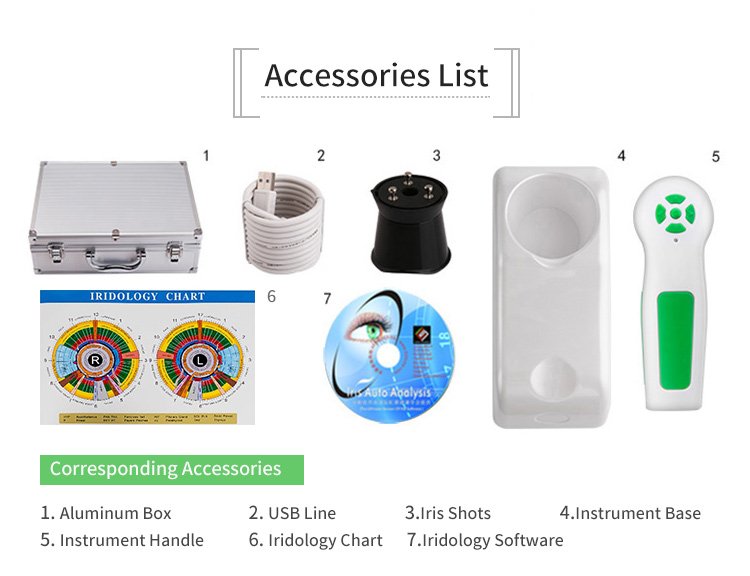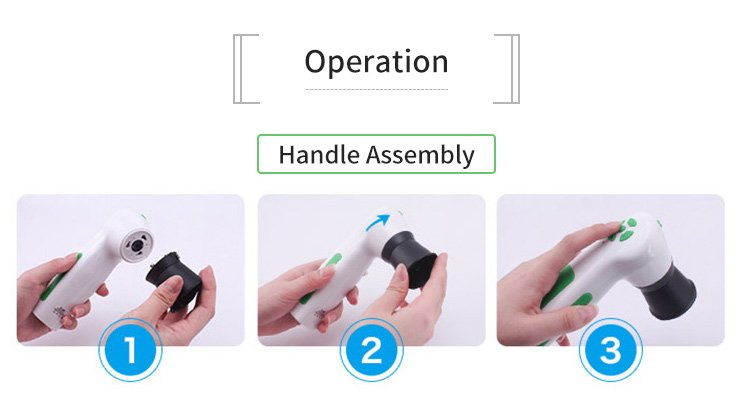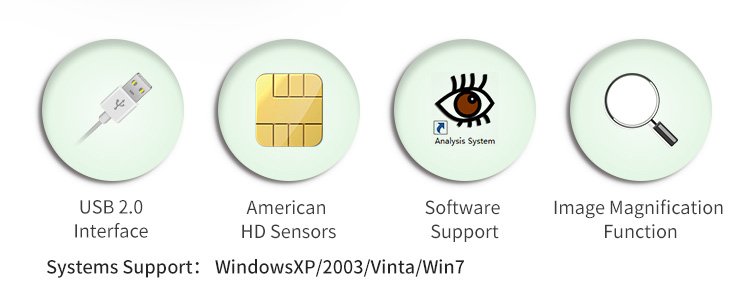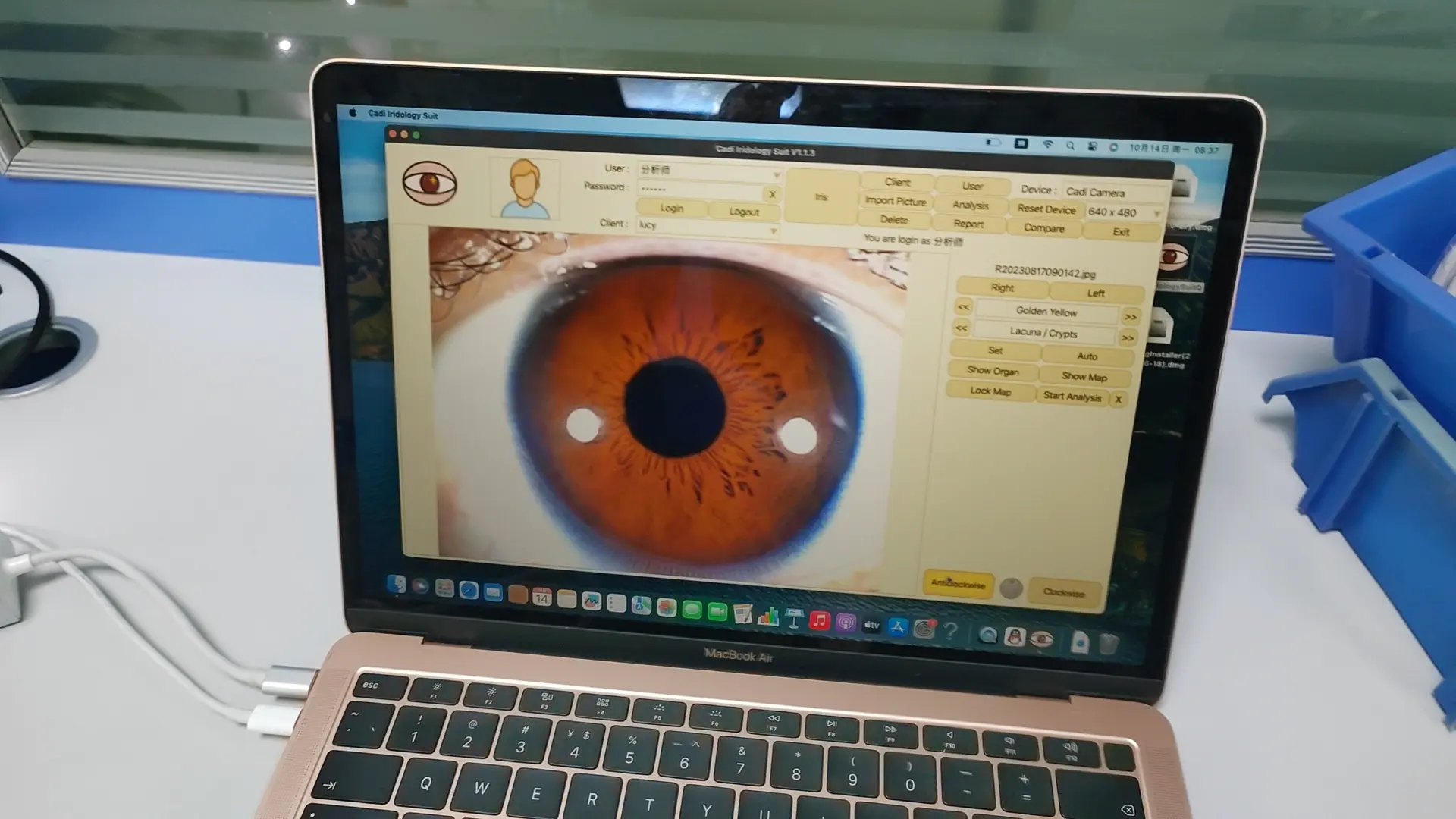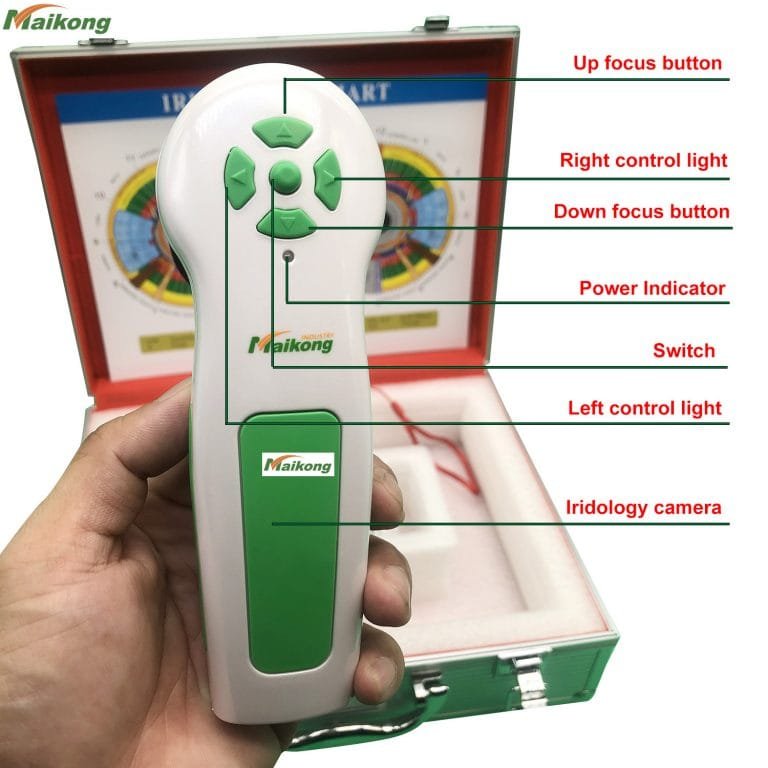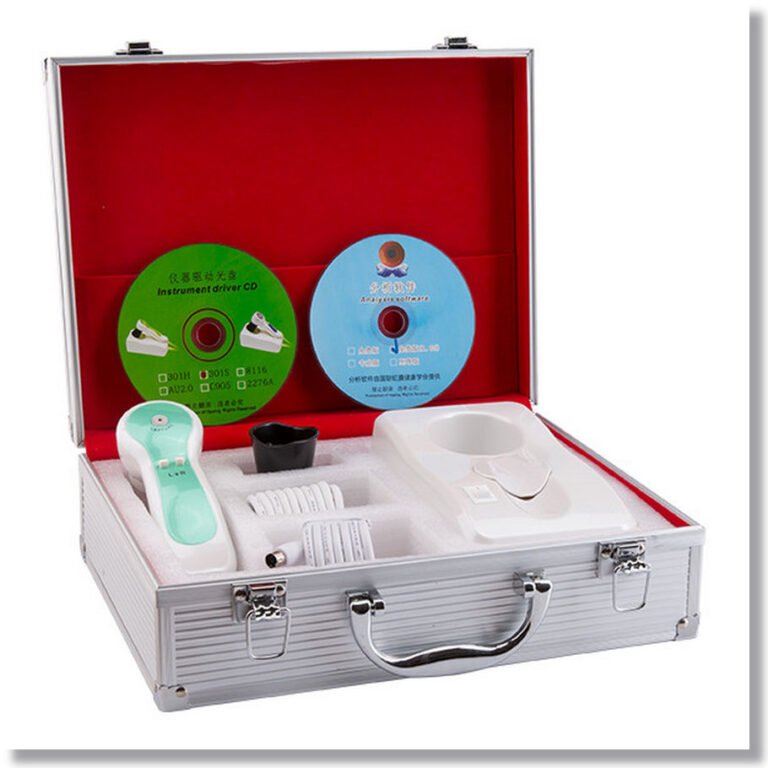Iridology Camera: ancient practice of iridology has entered the digital age with advanced iridology cameras that allow practitioners to examine the iris in unprecedented detail. These specialized devices serve as powerful tools in alternative medicine, offering insights into potential health conditions through non-invasive iris analysis. By capturing high-resolution images of the iris, these cameras help identify patterns, colors, and markings that may reflect the state of various body systems according to iridology principles.
What Is an Iridology Camera and How Does It Work?
و كاميرا علم القزحية is a specialized digital imaging device designed to capture highly detailed photographs of the iris, the colored part of the eye. These cameras typically feature high-resolution sensors, specialized iris lenses with magnification capabilities (usually 30x to 50x), and integrated LED lighting systems that provide consistent illumination without causing discomfort to the subject.
Modern iridology cameras connect to computers via USB and work with specialized iris analysis software that helps practitioners identify and interpret various markings, patterns, and color variations in the iris. The technology has evolved significantly from early film-based systems to today’s digital iriscopes that offer immediate image capture, storage, and analysis capabilities.
The core principle behind these devices is that the iris contains a detailed map of the body, with different zones corresponding to specific organs and systems. By examining these zones with a high-resolution camera, practitioners aim to identify signs of inflammation, toxin accumulation, or other health concerns that might not be detectable through conventional methods.
المكونات الرئيسية لكاميرات علم القزحية الحديثة
التصوير عالي الدقة
Professional iridology cameras feature 8-12 megapixel sensors that capture minute details in the iris structure, allowing for precise analysis of iris fibers, pigmentation, and other significant markers.
Specialized Iris Lenses
These cameras use 30x to 50x magnification lenses specifically designed for close-up iris photography, with adjustable focus mechanisms to ensure clarity regardless of eye shape or position.
Integrated Analysis Software
Most iridology cameras come with dedicated software that maps the iris according to iridology charts, helps identify significant markings, and can store patient records for tracking changes over time.
The Technology Behind Iridology Cameras
The effectiveness of an iridology camera depends on several technological factors that work together to produce clear, detailed iris images suitable for analysis. Understanding these elements helps practitioners select the right equipment for their needs.





Advanced iridology software analyzing iris patterns and mapping them to body systems
Image Capture Technology
Modern iriscopes use CCD (Charge-Coupled Device) or CMOS sensors similar to those found in digital cameras but optimized for close-up macro photography. These sensors, combined with specialized optics, allow for capturing the intricate details of iris fibers, crypts, and other structures that form the basis of iridology analysis.
Lighting Systems
Proper illumination is crucial for accurate iris analysis. Professional iridology cameras feature LED lighting systems that provide full-spectrum natural light. These lights are positioned to minimize reflections and shadows while highlighting the three-dimensional structure of the iris without causing pupil contraction.
تكامل البرمجيات
The hardware is only half the equation. Advanced iridology software works with the camera to enhance images, map them to standardized iridology charts, and provide analysis tools. Some systems offer automatic identification of significant markings and can generate reports based on the findings.
Benefits of Using an Iridology Camera in Health Assessment
Advantages of Iridology Cameras
- Non-invasive health screening without blood tests or radiation
- Potential early detection of developing health conditions
- Holistic view of body systems and their interrelationships
- Visual documentation that can be tracked over time
- Enhanced client education through visual representation
- Integration with other holistic health practices
Limitations to Consider
- Requires proper training for accurate interpretation
- Not recognized by conventional medical establishments
- Quality of analysis depends on camera and software quality
- Should complement rather than replace medical diagnosis
- Initial investment can be significant for professional models
Discover How Iridology Can Enhance Your Practice
Learn how integrating iridology camera technology can provide deeper insights for your clients and expand your holistic health services.
Request Free Consultation
Real-World Applications of Iridology Cameras
Iridology cameras have found their place in various health and wellness settings, offering practitioners and clients alike a unique perspective on health assessment. Here’s how these specialized devices are being used in real-world scenarios:

عيادات العلاج الطبيعي
Naturopathic doctors often incorporate iridology as part of their comprehensive assessment protocols. The iridology camera allows them to document baseline iris conditions and track changes as treatment progresses, providing visual evidence of improvement that complements subjective symptom reports.

مراكز العافية
Holistic wellness centers use iridology cameras as educational tools to help clients visualize potential imbalances in their body systems. This visual approach often increases client engagement and motivation to follow recommended lifestyle and nutritional protocols.

Nutritional Counseling
Nutritionists trained in iridology use these cameras to identify potential digestive weaknesses, absorption issues, or inflammation patterns that might inform personalized dietary recommendations. The iris analysis helps tailor nutrition plans to individual constitutional types.
“The iridology camera has transformed my practice by providing clients with visual evidence of their health journey. When clients can actually see changes in their iris patterns over time, their trust and compliance with recommended protocols increases dramatically.”
– Dr. Sarah Miller, Naturopathic Physician
How to Choose the Right Iridology Camera
Selecting the appropriate iridology camera requires consideration of several factors to ensure you get equipment that meets your specific needs and provides reliable results for iris analysis.
| ميزة | Entry-Level | Mid-Range | احترافي |
| دقة | 5-8 ميجابكسل | 8-10 MP | 10-12+ MP |
| التكبير | 20-30x | 30-40x | 40-50x |
| إضاءة | Basic LED | Adjustable LED | Full-spectrum adjustable |
| برمجة | Basic analysis | Comprehensive analysis | Advanced with client management |
| النطاق السعري | $200-450 | $450-800 | $800-2,000+ |
Essential Factors to Consider When Purchasing
المواصفات الفنية
- Resolution: Higher megapixel counts (8MP+) provide clearer details of iris fibers and markings
- Magnification: 30x is the minimum for professional analysis; 40-50x offers more detail
- Lighting: Look for adjustable LED systems with natural spectrum lighting
- Focus control: Manual focus adjustment ensures clarity regardless of eye position
Software Capabilities
- Compatibility: Ensure software works with your operating system (Windows/Mac)
- Analysis tools: Look for iris mapping, comparison features, and reporting functions
- Client management: Database capabilities for storing and tracking client images
- Updates: Regular software updates indicate ongoing development and support
Practitioner Tip
When evaluating iridology cameras, request sample images taken with the device to assess the clarity and detail. The best camera should clearly show iris fibers, crypts, and color variations without blurring or distortion, even at high magnification.
Ready to Explore Iridology Camera Options?
Connect with specialists who can help you select the right iridology camera system for your specific needs and budget.
Compare Top Models
Frequently Asked Questions About Iridology Cameras
How accurate are iridology camera analyses?
The accuracy of iridology analysis depends on several factors including the quality of the camera equipment, the expertise of the practitioner interpreting the images, and the specific health conditions being assessed. While iridology is not recognized by conventional medicine as a diagnostic tool, many holistic practitioners find value in the patterns and changes they observe through high-quality iris imaging. For best results, iridology should be used as one component of a comprehensive health assessment approach.
Can iridology cameras be used at home by non-professionals?
While there are consumer-grade iridology cameras available, interpreting iris images requires significant training and experience. Home users may be able to capture basic iris images, but proper analysis typically requires professional knowledge of iridology principles and patterns. Some manufacturers offer simplified software for home users, but these should be viewed as educational tools rather than diagnostic devices.
What’s the difference between an iridology camera and a regular digital camera?
Iridology cameras are specialized devices designed specifically for close-up iris photography. They feature macro lenses with high magnification (typically 30-50x), specialized LED lighting systems that illuminate the iris without causing pupil contraction, and often include software calibrated for iris analysis. Regular digital cameras, even with macro capabilities, generally cannot achieve the same level of detail, consistent lighting, or integration with analysis software.
How often should iris analysis be performed?
For health monitoring purposes, many practitioners recommend baseline iris imaging followed by periodic reassessment every 3-6 months, depending on individual health goals and concerns. Acute conditions might warrant more frequent monitoring, while general wellness tracking might require only annual updates. The iris typically shows gradual changes over time rather than rapid alterations, except in cases of acute inflammation or healing reactions.
Conclusion: The Future of Iridology Cameras in Holistic Health
Iridology cameras represent a fascinating intersection of ancient health assessment techniques and modern digital technology. As these devices continue to evolve with higher resolutions, more sophisticated software, and greater accessibility, they offer practitioners and health enthusiasts alike a unique window into potential health patterns through non-invasive iris analysis.
While iridology remains outside mainstream medical practice, the growing interest in preventative and holistic health approaches has created a steady demand for these specialized tools. The best use of iridology cameras comes when they’re integrated as part of a comprehensive health assessment strategy, complementing rather than replacing other diagnostic methods.
For practitioners considering adding iridology to their practice, or individuals interested in exploring this fascinating field, investing in a quality camera system with proper training represents the first step in a journey toward understanding the complex language of the iris and its potential insights into overall health and wellness.
Take the Next Step in Your Holistic Health Journey
Consult with a certified iridologist to discover how iris analysis can provide personalized insights into your health patterns and potential.
Find a Certified Iridologist



